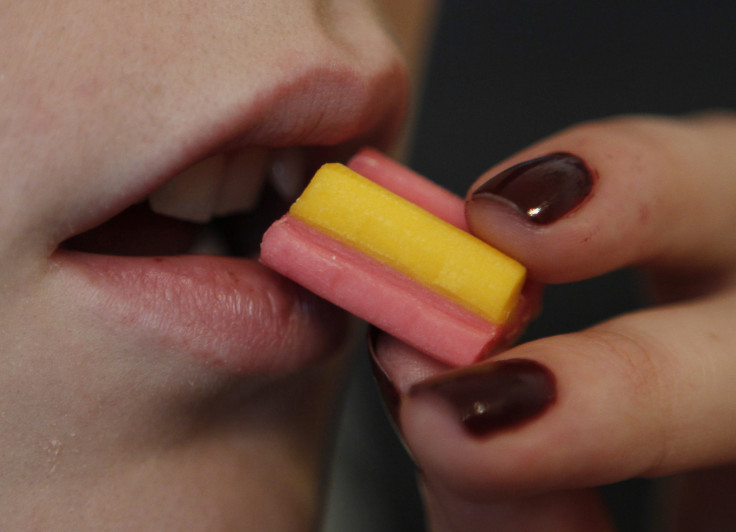Chewing Gum Study: Researchers Say It Can Make You Overweight, Hungry; Increases Concentration

Spit out that gum and jump on that treadmill. A new study just debunked the myth that chewing gum can help weight loss, according to the April edition of Eating Behaviors journal.
The study found that instead of suppressing appetite, chewing gum tends to induce people to eat more junk food like chips, cookies and candy instead of healthy alternatives.
Researchers also found that the menthol that gives a minty flavor leads gum-chewers to shun fruits and vegetables since it makes their nutrients “taste funny.”
Christine Swoboda, a study co-author and doctoral candidate in nutrition at Ohio State University, said the taste is similar to that of drinking orange juice after brushing your teeth.
“It tastes bad," said Swoboda, who conducted the experiment with University of Buffalo colleague Jennifer Temple.
In the study, half of the participants played to win oranges and grapes and the others, chips and M&M’s, all while chewing Juicy Fruit and Wrigley’s Spearmint gum.
The study found that those chewing the mint-flavored gum played the game for a significantly shorter period when rewarded with fruits.
A second experiment, which asked participants to chew gum before every meal and keep a food diary, showed that those who chewed gum before eating not only consumed fewer meals, but also chose foods that were low in nutrition and high in calories.
“[People] ate less fruits and vegetables, because in their head, they thought ‘I have to chew gum before every meal—do I really want a snack of grapefruit?’ Whereas, they were like, ‘I’m so hungry I’m going to eat this double cheeseburger and it will taste the same,” said Swoboda.
Chewing gum may be bad for your waistline, but a different study released by the British Psychological Society earlier this month said that chewing gum benefits your ability to concentrate.
The study, which focused on the sugary treats' ability to benefit concentration on audio memory tracks, showed that participants who were chewing gum throughout testing periods during the experirement had faster and more accurate reaction times versus those who were not.
© Copyright IBTimes 2024. All rights reserved.






















